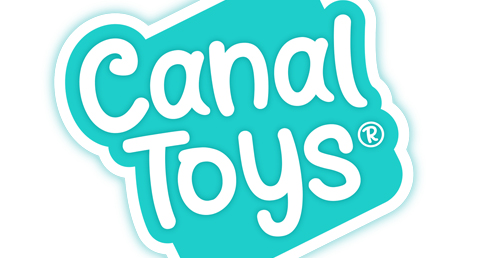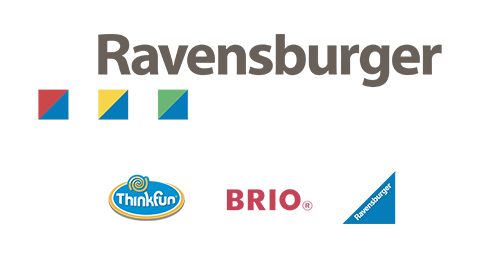According to the British Retail Consortium, February saw a general sales decline which it put down to pre-Brexit consumer jitters. I sent a tweet about the story and asked if this was the experience of toy retailers, which met with a largely affirmative response. One respondent went so far as to say: “Most definitely and I think it’s only going to get worse.” Looks like D-Ream are going to have to re-record their most well-known song to update it for the current climate – after the Labour Party used ‘Things can only get better’ as its election campaign song in the 90s, it may now have to be ‘Things can only get worse’. Whether concerns turn out to be Project Fear or Project Reality, we don’t have long to wait now before we find out either way.
Speaking to The Entertainer’s Gary Grant recently, he described the start to the year as “good, but erratic.” Of course, like-for-like performances were always going to be patchy for those retailers who jumped on the L.O.L. Surprise! bandwagon early last year, as The Entertainer did. Those early adopters saw a massive upsurge in sales around this time last year, while L.O.L. is in far broader distribution across the whole toy market this year. It’s amazing how much impact one single range can have on the overall sales numbers and market shares, but here we are.
While L.O.L. has continued last year’s stellar sales performance, Gary suggested it is by no means alone in getting off to a good start, with Barbie, Hot Wheels, Lego (driven by the Lego Movie 2) and Spin Master all coming in for praise, while he has high hopes for Power Rangers later in the year.
On the positive side, this suggests that as an industry, we are doing all we can to keep momentum going. However, what happens in the political sphere over next couple of weeks may have a significant bearing on the retail channel over the coming months. I won’t be in the country for next week’s crucial votes – if indeed they go ahead as planned – as I will be travelling to Moscow to give a presentation at the Kids Russia event. More on that trip next week, and if anyone is thinking of visiting Russia in future, feel free to get in touch and I can give you a few handy tips on what not to do to secure your Russian Visa. I swear it would be easier to learn brain surgery via an online tutorial given in Swahili than fill out the visa form correctly.
While political uncertainty persists, so too does retail tumult: this week has seen Debenhams release a profit warning, with the admission that its previous statement about being on track to deliver profits in line with market expectations is “no longer valid”, after sales fell sharply over Christmas. That certainly isn’t going to fill toy companies with great confidence: I was party to a discussion on the journey home from Nuremberg which revolved around the dilemma of whether or not to continue supplying Debenhams, and the views even at that stage were decidedly mixed.
We also saw Sports Direct make a bid to acquire Findel, which would put it in charge of Express Gifts, possibly a precursor to Mike Ashley having a real pop at Shop Direct – except for the fact that Findel has initially rebuffed the approach. Meanwhile, Mr Ashley is clearly keeping his options open, as he has simultaneously launched a bid to take control of Debenhams, which would see him leave his role as CEO of Sports Direct. Apparently he wants to install himself on the board and has called for the removal of all but one of its directors. Debenhams is said to be “disappointed that Sports Direct has taken this action,” so it seems that no-one wants to play with Mr Ashley at the moment.
While Bricks and Mortar stores continue to provide a rich vein of news stories, there have also been a couple of interesting developments in the digital world this week. First, YouTube has confirmed that it will switch off comments on almost all videos featuring under-18s. While some people have attempted to downplay this move, others have suggested it will have an impact on the effectiveness of kid influencer community: as one well-positioned media observer suggested, “A video with zero engagement beyond views is worth what, exactly?” Of course, toy marketing people aren’t literally reading all the comments to evaluate engagement, but they do offer some evidence of tangible interaction, which makes toy companies more confident that they’re working with someone who has genuine reach and engagement. There are perhaps too many charlatans working in this area who buy followers (largely bots) and quote vanity metrics – the level of interaction offers a small buffer against this. Removing comments puts yet another question mark against the effectiveness of YouTube influencers – especially at a time when their rates have increased so dramatically.
Meanwhile, over at my favourite online retailer Amazon, rumours have been circulating that it may be about to merge its purchase order-based Vendor Central system and its Seller Central marketplace to create a ‘one vendor’ system. You can read the full story here. If true, this would be huge news. Forbes, which ran the original story, is a generally reliable source, so it is definitely worth keeping an eye on.
Amazon also revealed its new Project Zero initiative this week, with the goal of eliminating counterfeit products from its site. This is a hugely ambitious and gargantuan task, but you have to give credit to Amazon for attempting to address it – even if it is going to cost suppliers to be part of the initiative. It would be easy to be cynical about the fact that Amazon sees eradicating counterfeits as a way to boost its own profits: one piece of online coverage quoted Amazon as “making merchants cough up protection money” with the headline “It’s up to you to stop fake stuff going on sale in our cyber-bazaar, says multibillion-dollar biz.” But, on this occasion, let’s give them the benefit of the doubt that they are at least admitting there is a problem and trying to find a solution. I’m not sure I agree with the website on which someone suggested that: “You are wasting your time policing counterfeit goods. The threat is more perceived than real.” Personally, I think the threat is very real, and if everyone stands by and does nothing, it will only escalate to epidemic proportions. Is Project Zero enough? Nowhere near. But is it a start? I believe it is. Let’s hope it points the way to a credible long-term solution.














